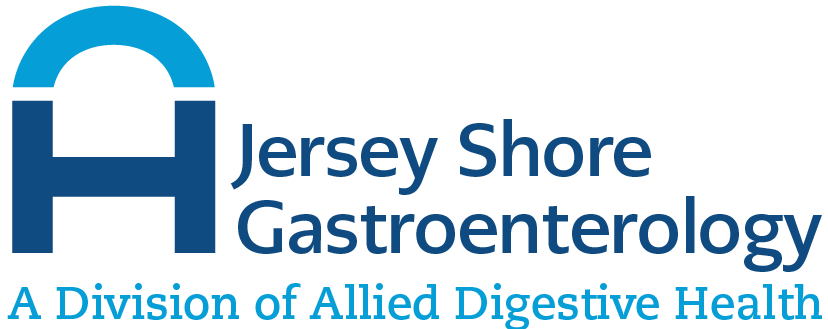What Is Achalasia?
Achalasia is a rare disorder of the esophagus that affects about 1 in 100,00 people. Both men and women have equal chances of developing it, and it isn’t associated prominently in one ethnicity over another. Achalasia typically develops between the ages of 25 and 60.
The esophagus is the tube that connects your throat to the stomach. At the bottom of the esophagus is a muscle called the lower esophageal sphincter (LES). Its job is to relax in order to let food pass through. When a person is finished eating, a properly functioning LES will close. When the LES has spasms, stomach acid makes its way into the esophagus, which can cause damage, often resulting in acid reflux or gastroesophageal reflux disease (GERD). However, in a person with achalasia, the LES does not relax at all, and food cannot make its way into the small intestine.
What Are the Symptoms of Achalasia?
If a patient develops achalasia, they will most likely have noticeable symptoms. The most common symptom of achalasia is dysphagia, which is difficulty swallowing. Other symptoms of achalasia may include:
- Heartburn
- Chest pain (may be intermittent and/or severe)
- Regurgitation of food
- Cough, especially at night
- Hiccups
- Difficulty belching
- Weight loss
- Malnutrition from difficult eating (later symptom)
These are all common symptoms when it comes to gastrointestinal disorders, so if you’re experiencing one or more of them for more than a day or two, you should consult your gastroenterologist so you can get a checkup.
What Causes Achalasia?
Researchers and doctors are unsure of the exact cause of achalasia. Some research leans toward genetics, however, all adults from age 25 to 60 have an equal risk of developing achalasia, even though it is a rare disorder. It doesn’t target a specific gender or ethnic group. A theory is that achalasia is an autoimmune disorder, where the body’s cells attack healthy cells, but more research is needed. If achalasia is not treated, it can lead to more serious problems, such as esophageal cancer, lung infections, and pneumonia.
How Is Achalasia Diagnosed?
If your healthcare provider suspects achalasia, they will run certain diagnostic tests to confirm the diagnosis. Some of the possible options include:
- Upper GI endoscopy. This is a nonsurgical outpatient procedure where a long, thin tube with a camera attached to the end is inserted into the throat. The endoscope can give your doctor a clear view of your esophagus, stomach, and the top of your small intestine (duodenum). An upper GI endoscopy is used to diagnose and treat a number of conditions, including achalasia.
- Barium swallow. For this test, you swallow liquid barium, and then X-rays are taken. The barium will “light up” your esophagus so your doctor can see if there is a narrowing of the esophagus at the lower esophageal sphincter, which is associated with achalasia.
- Manometry. This test is the gold standard for detecting achalasia. For this procedure, a small manometry catheter is inserted into the nose and passed into the esophagus. The catheter will collect pressure readings when the esophagus contracts (peristalsis) and when the LES relaxes. You will also be asked to drink small amounts of water during the test to help collect those measurements.
If your physician finds enough evidence for achalasia, it is time to discuss treatment options. Achalasia does have potentially severe consequences if it goes untreated.
What Is the Treatment for Achalasia?
There is no cure for achalasia, but a few treatments can help arrest the symptoms and help the LES function properly again. Treatment depends upon each individual case, and your gastroenterologist will go over all of the options with your prior to starting treatment. Some options include:
- Laparoscopic esophagomyotomy. This is a minimally invasive surgery that uses an scope, however, the scope is inserted through an incision in the abdominal wall. The scope’s camera guides your physician, who will cut the muscle fibers of the LES. This can sometimes unfortunately cause a different GI condition, GERD, so laparoscopic esophagomyotomy is typically used in combination with a procedure called partial fundoplication to prevent this.
- Peroral endoscopic myotomy (POEM). This is also a minimally invasive surgery where the muscles of the LES, part of the esophagus, and the upper part of the stomach are cut with a small knife through an upper endoscopy. All of these cuts help make the LES work properly again.
- Balloon dilation. This is an endoscopic, nonsurgical procedure where a balloon is inserted into the scope and then through the LES. When the balloon is inflated after insertion, it helps the LES work better. Balloon dilation may take several treatments to work, however, it is the most common treatment for achalasia.
- Medication. If either balloon dilation or surgery is risky, your physician may recommend medications to relax the LES. Botulinum toxin (Botox) can be injected into the LES via upper endoscopy. With Botox, the LES can relax up to 6-12 months. Alternatively, some oral medications can be used to relax the LES, though they are generally not that effective.
- Esophagectomy. If there is serious damage and all other treatment methods have been exhausted, the last possible treatment is the complete removal of the esophagus.
With both surgical and nonsurgical treatments, there can be possible side effects of GERD, bloating, and perforation of the esophagus.
What Happens If Achalasia Is Not Treated?
If achalasia is not treated, it can result in serious complications. Malnutrition and vitamin deficiencies are common since food cannot properly enter the small intestine. Additionally, long-term damage from achalasia can put one at risk of developing esophageal cancer. If you’re experiencing gastrointestinal disturbances, the best rule of thumb is to always be evaluated by your healthcare provider.

